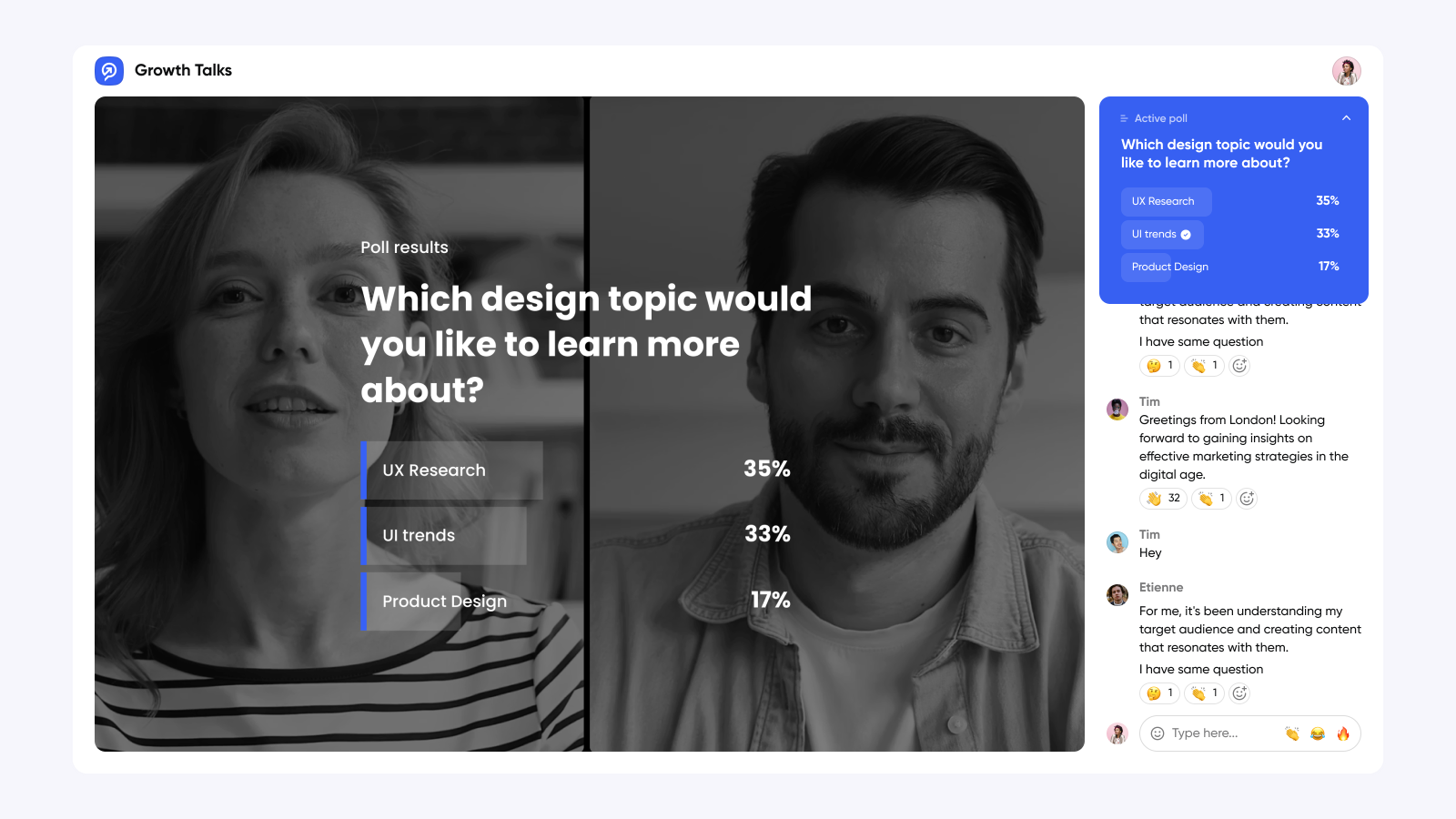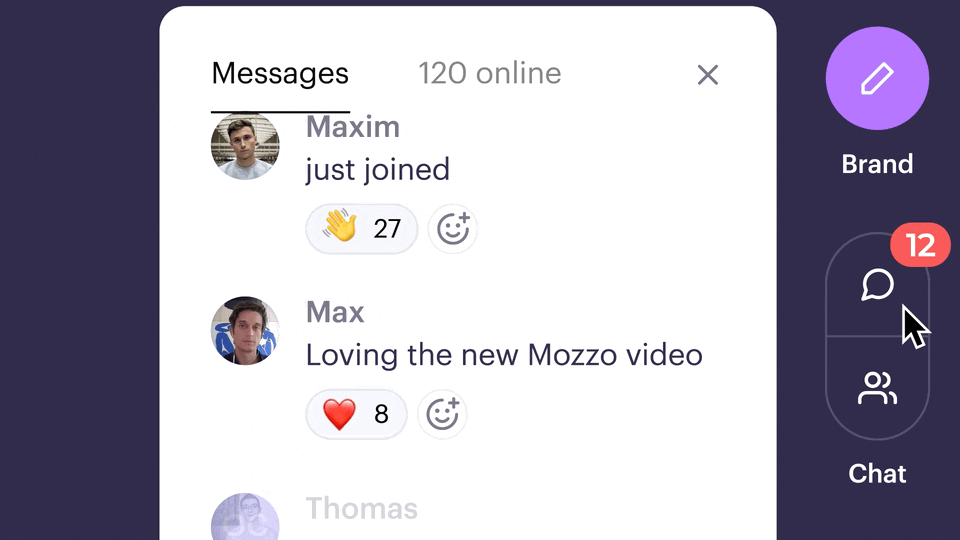Ever wondered what happens behind the curtains of a seminar? Imagine a well-rehearsed theatre show. Only, instead of actors on a stage, we have intellectuals sharing knowledge and fellow enthusiasts soaking up information.
Just like a theatre show is more than actors reading lines, a seminar isn't just about talk and listen. In your quest to slay the confusion monster about seminars, this post is your silver bullet. We serve you everything you need to know, baked to perfection - without the intimidating jargon, of course.
Remember those times when you scrambled to find answers before a test? Imagine a seminar as your friendly, neighborhood guide on steroids that offers in-depth understanding, expert insights, and an opportunity to network, without stringent time limit. Intriguing, right? And that, dear reader, is just the appetizer - wait till you feast on the richness that seminars offer!
Unraveling the Seminar Definition: What Exactly is a Seminar?
- You're about to unpack the origins and evolution of seminars.
- Get a crystal clear definition of what modern-day seminars entail.
- Become familiar with the key components that flesh out an effective seminar.
The Origin and Evolution of Seminars
The name 'seminar' itself carries the weight of tradition, tracing its roots back to Aristotle's own peripatetic school where the formation of wisdom was firmly rooted in active discussion, analysis, and practical applications. This was, perhaps, the earliest variant of a seminar. Fast forward to the 19th century, university seminars began to take shape in Germany, chiefly in disciplines such as theology and philology. These collaborations focused on rigorous research, erudite dialogue, and the nuanced dissection of subject matters, elements that remain a staple in seminars today.
Expansion of the seminar model proliferated across global academia, its impact reaching a crescendo during the 20th century when seminars morphed into critical components of both undergraduate and postgraduate education. The rise of technology has further metamorphosed this platform, introducing digital seminars - colloquially known as webinars, harnessing the power of connectivity for knowledge exchange across continents.
Modern-day Seminar: A Closer Look
Fasten your seatbelts as we venture into the anatomy of a modern-day seminar; a venue for the focused, exhaustive exploration of intricate topics. You can envision a seminar as an interactive platform engaging a group of participants, often limited in number to foster deeper dialogue and mutual learning.
Typically driven by an guest speaker or a panel of experts, a seminar peddles between structured presentations and unscripted discussions, thereby marrying the deductive and inductive modes of learning.
From academia, corporate training, to civil discourse, the relevance of seminars continues to permeate multiple verticals. Not restricted by geographical boundaries, seminars extend their reach by thriving on virtual platforms, creating a global classroom, or boardroom for that matter. Historically rooted, dynamically evolving, recorded to use again & again, and intrinsically interactive - that's the modern-day seminar for you.
Key Components of a Seminar
Under the hood of every successful seminar are key components working in synchronization to birth an enlightening learning experience.
Keynote Speaker(s): They commandeer the seminar, wielding expert knowledge and deft facilitation skills to steer the course of discussion and exploration.
The Topic: A seminar's worth spins around its central idea or topic. Every discussion twists and turns around this axis, expanding its dimensions for a comprehensive understanding.
Discussion: This is the lifeblood of a seminar. Participant engagement through Q&A sessions, debates, or roundtable discussions catalyzes active involvement and sustains the pulse of the seminar.
Analysis: Deep dives into subject matters, discussing various viewpoints and interpretations while defying surface-level analyses are a seminar's forte.
What lies beyond this journey through seminar history, definitions, and components is the power of knowledge sharing and the undeniable benefits of seminars. As you bookmark this page, you're already a step ahead in understanding the multi-dimensional nuances of seminars.

Run More Engaging Seminars
Start for free with up to 30 registrants. No credit card needed.
Start for freeThe Power of Knowledge Sharing: Benefits of Seminars
- Elevate your abilities through enhanced knowledge and skills
- Unlock networking opportunities
- Gain exposure to different perspectives
Enhancing Knowledge and Skills
Seminars foster an atmosphere of learning. Guest speakers in the field guide these sessions, offering an enriched environment where attendees can delve into specific topics and sharpen their knowledge. Not only do these educational rendez-vous bring industry-specific expertise to your fingertips, but they also provide tailored content, designed for maximum comprehension and application.
Moreover, seminars often offer hands-on experience. Through workshops, collaborative exercises, and real-world case studies, these events provide a practical approach to learning. Attendees can apply the lessons on the go, making them more effective and impactful. As a result, individuals can refine their skills, making them more proficient in their roles.
Networking Opportunities
One significant advantage of seminars is the networking potential they carry. Attendees find themselves amidst like-minded professionals, leading to connections that can be pivotal for individual and business growth. Participants may unearth collaborations, potential clients, or even future team members during coffee breaks, discussions, or after-event rendez-vous.
Building these relationships not only enhances your professional network but also opens doors for future collaboration and knowledge sharing. After all, the power of networking is undeniable in the professional world.
Exposure to New Ideas and Perspectives
Seminars are fertile grounds for ideation and innovation. By inviting a diverse range of speakers and attendees, these events create a melting pot of thoughts, viewpoints, and experiences. Participants gain exposure to new perspectives that can ignite a spark of innovation or provide a fresh approach to existing challenges.
Moreover, the interactive setting of seminars encourages attendees to voice their thoughts, thus adding to the richness of the discussion. This dialogue can encourage participants to think differently, challenge their biases, and become more open-minded and innovative in their approach.
Remember, seminars are a platform for cognitive expansion. They are not just about enhancing what you already know, but also about exploring the uncharted territories of knowledge, connections, and perspectives.
Exploring the Seminar Landscape: Types of Seminars
- Learn about the distinctive nature of Academic, Business, and Personal Development seminars.
- Discover their intended purposes and how they're typically structured.
Academic Seminars
Constructive dialogues, interactive learning, and in-depth understanding- these elements define the essence of an Academic Seminar. Broadly, such seminars serve as a platform for students and scholars to delve into various academic subjects and its complexities. They stimulate intellectual discussions and foster critical thinking, thereby invigorating the academic community.
Academic seminars are meticulously organized, often encompassing presentations, interactive sessions, and panel debates. They adhere to a predetermined agenda that outlines the topics of discussion, the order of speakers, and the allotted timeframe. The seminar format can be a symposium (multiple speakers), a workshop (group activities), or a conference (large gathering with multiple sessions).
Running Academic seminars online allows for the use of Polls and other interactive features to engage students even further.

Business Seminars
In the ever-evolving business landscape, staying updated is the key to survival. This is where Business Seminars come into play as a gateway to knowledge sharing, networking, and capability-enhancement. These seminars enlighten attendees with the latest trends, insights, and strategies pertinent to their industries. They could cover a range of subjects from financial management to digital marketing, workforce development, and more.
Businesses can leverage seminars, and particularly webinars to generate leads and new business in a scalable fashion that just isn't possible with in-person seminars. The world of business is moving online and businesses have to follow along or be left behind.
A typical structure of a business seminar includes keynote speeches, panel discussions, and often, interactive workshops. Distinguished industry leaders and experts contribute valuable insights, while networking breaks allow attendees to forge meaningful connections.
Personal Development Seminars
Who doesn't yearn for personal growth and self-improvement? Personal Development Seminars cater to this universal quest, aiding individuals in honing skills, imbibing positive habits, and catalyzing inner change. These seminars guide individuals towards overall well-being and achieving their full potential.
Organizationally, personal development seminars employ experiential learning techniques, blending motivational talks, engaging activities, and group exercises in their structure. They touch upon diverse areas such as leadership, emotional intelligence, time management, and assertiveness, among others.
Approaching the sprawling world of seminars from the lens of its types, you may comprehend their versatile nature – suiting a wide spectrum of focus areas and audience types. In the next section, we'll implicitly segue into the labyrinth of creating your own seminar, but for now, familiarize yourself with these seminar types, figuring out which resonates the most with your needs.

Run an online seminar your audience will love
Start for free with up to 30 registrants. No credit card needed.
Start for freeBehind the Scenes: How to Organize a Successful Seminar
- Mastering the fundamentals of planning and preparation
- Harnessing effective promotion and marketing strategies
- Ensuring successful execution and follow-up
Planning and Preparation
Mastering the planning and preparation phase could very well spell the difference between an astounding seminar and a drab one. This phase involves careful theme selection, identifying your target audience, and establishing clear objectives. You can't afford to overlook these critical elements. By planning meticulously, you're setting up a firm foundation that will guide every subsequent decision and action.
Planning a seminar is much like planning a webinar, check out out guide here.
Think of your seminar as a puzzle, and planning is about finding and fitting all the right pieces. You'll be considering factors such as your budget, the potential attendees, the venue, the schedule, and the guest speakers. All these can impact the success of your seminar.
Promotion and Marketing
No matter how well-planned your seminar is, it's essential to engage in robust promotion and marketing. Attracting the right attendees matters just as much as crafting an enriching program.
Establish a strong online presence across various channels like websites, communities, and email invitations. Depending on your audience, traditional marketing methods like print ads or radio spots may also prove beneficial.
Social media promotion can also be a powerful channel for driving audience members to your seminar. More and more people are online and spending time looking for information online.
Remember, the appropriate marketing strategies depend heavily on the nature of your seminar and the audience you're targeting.
Execution and Follow-up
Equally important to your seminar’s success is its execution. This entails ensuring everything goes according to plan during the actual event day. Smooth logistics, engaging presentations, and adequate interaction opportunities are vital in this phase.
But don't stop there - the work continues even after the seminar's curtains have closed. Engage attendees with thoughtful follow-up emails. Send thank-you notes, receive input, evaluate opportunities for improvement, and maintain a connection for future seminars.
Consider sending post-seminar surveys to understand what attendees liked most so you can double down on this during your next event or online webinar.
With these crucial elements in mind, organizing a successful seminar becomes a less daunting task. You're not just adding another seminar in the landscape, but a unique, well-planned, and well-executed experience that provides genuine value to your attendees.
Seminar vs Webinar: Understanding the Differences
- Unwrap the nuances of seminars and webinars in terms of definitions and format.
- Extract the pros and cons of both platforms.
- Acquire knowledge on picking the most suitable format based on your specific needs.
Definition and Format
Seminars and webinars both act as platforms for sharing information, fostering discussion, and promoting learning. However, they diverge remarkably when it comes to definitions and formats.
In essence, a seminar is a more traditional form of learning. It's a gathering where experts on specific topics engage in round-table discussions, share research or findings, and open the floor for questions and discussion from the audience. These are typically held in person, in an educational or professional setting.
On the other hand, a webinar, short for web-based seminar, leverages online platforms to disseminate information. Through the use of technology, a speaker or panel can reach a global audience from the comfort of their own homes or offices.

Both formats have their unique attributes and structure, with one being more dynamic and the other bearing a digital smoothness.
Advantages and Disadvantages
Just as each format varies in its definition and structure, so too do the advantages and disadvantages linked to each.
Attending a seminar allows for a more organic interaction among attendees and with the experts. The palpable energy in these settings is hard to replicate, and the networking opportunities can be quite beneficial. However, the logistical hurdles of travel, accommodation, and aligning schedules are challenges for many attendees.
Webinars, conversely, offer a level of convenience that’s hard to beat. Attendees can join from anywhere in the world, removing barriers such as geographical distance, and often at a lower cost. Interaction, though, is less immediate and organic - the "human touch" can be lacking in this digital format. But modern platforms like Contrast are challenging this with webinar platforms built for interaction.
Webinars also provide detailed analytics and are much better at proving ROI than in-person events. Having information on each attendee, how long they watched, questions asked, attendance rate, etc. makes analysis a piece of cake.
Choosing between the two formats isn’t a matter of picking the better one; it’s about identifying which platform best aligns with your needs or circumstances.
Choosing the Right Format for Your Needs
Just as a craftsman picks the right tool for the job, choosing between a seminar and a webinar depends largely upon your specific requirements.
Identifying your audience is a critical first step. If your audience is spread out geographically, a webinar may prove more practical and cost-efficient. If your goals include fostering a more intimate, human connection or networking experience, a seminar may be better suited.
Consider also the type of content you are planning to share. Complex and dense information might be better conveyed in the interactive setting of a seminar, while a webinar might be more suitable for a more direct or sales-oriented presentation.
How to run a product demo webinar? Learn here
In conclusion, understanding the definitions and structures, advantages and disadvantages of both seminars and webinars can streamline your decision-making process. Tailoring your choice to your audience and the type of content you need to deliver will ensure a more successful and impactful experience.

Run More Engaging Seminars
Start for free with up to 30 registrants. No credit card needed.
Start for freeWrapping Up: The Impact of Seminars on Personal and Professional Growth
- Seminars act as catalysts for lifelong learning.
- Seminars power career advancement and personal growth.
- The future of seminars presents exciting possibilities.
The Role of Seminars in Lifelong Learning
“He who learns but does not think, is lost! He who thinks but does not learn is in great danger.” With these words, Confucius perfectly encapsulates the essence of lifelong learning. But what role do seminars play in this process?
Back in the day, seminars were reserved for scholarly institutions. Today, they've transcended those boundaries, becoming a cornerstone of lifelong learning. Learners spanning the spectrum of age and occupation gather under one roof – or one online domain – to dive into a topic of mutual interest. The information gleaned from a well-crafted seminar can ignite an interest in a previously unexplored field or offer a fresh perspective on a well-versed subject.
Moreover, the engaging, interactive nature of seminars promotes active learning. Unlike passive consumption of information, active learning engenders higher levels of critical thinking and better information retention.
The Influence of Seminars on Career Advancement
Imagine you're aiming for a promotion or attempting a career pivot. Your expertise in your field is invaluable, but your lack of knowledge in a few crucial areas could be the hurdle. Enter seminars.
Professional seminars might be the missing link in your career advancement strategy. They offer a shortcut to acquiring knowledge and insights that could take months, if not years, to gain otherwise. Seminars provide a platform to learn from industry veterans, and more importantly, to network with like-minded professionals.
Within the span of a single event, you could pick up game-changing skills, insights, and contacts that could turbocharge your career progression.
The Future of Seminars
As the popular adage goes, "Change is the only constant". This rings true for seminars, too. The advent of technology has already fundamentally shifted the way seminars are conducted and attended.
Consider the rise of webinars or online seminars. By eliminating geographical barriers, webinars have opened the door to global learning opportunities. They've transformed seminars from local, periodic events, into a continuous, accessible exercise in international learning.
In the not-so-distant future, seminars could also see integration with artificial intelligence and augmented reality technologies. These advancements could create personalised learning experiences and promote higher engagement.
While the precise future trajectory of seminars can't be predicted, it's safe to say that the potential for growth and development in this field is monumental.
Pulling Back the Curtain on Seminars
Stripped down to its core, a seminar is a gathering of like-minded people, exchanging knowledge, and engaging in rich, productive conversation. The key ingredients include an expert or panel of experts, a focused topic, active participation, and the end goal - learning or professional growth.
What we've spent our time discussing shows the value of seminars in either growing your knowledge, enhancing your network, or refining professional skills. It's all about collaboration, two-way communication, and creating an environment ripe for growth.
Ready to plunge into the seminar world? Begin by identifying a seminar aligned with your interests or career goals. Just remember, to get the most out of it - be engaged, take notes, and don’t shy away from asking questions.

Run an online seminar your audience will love
Start for free with up to 30 registrants. No credit card needed.
Start for free